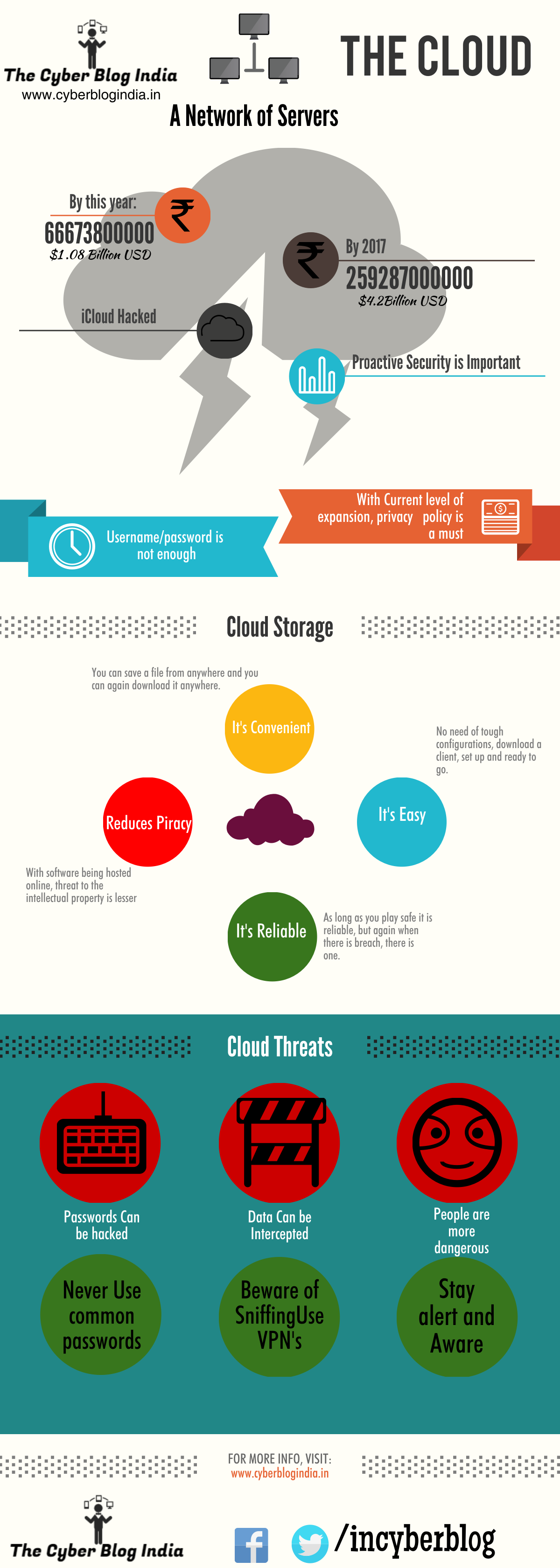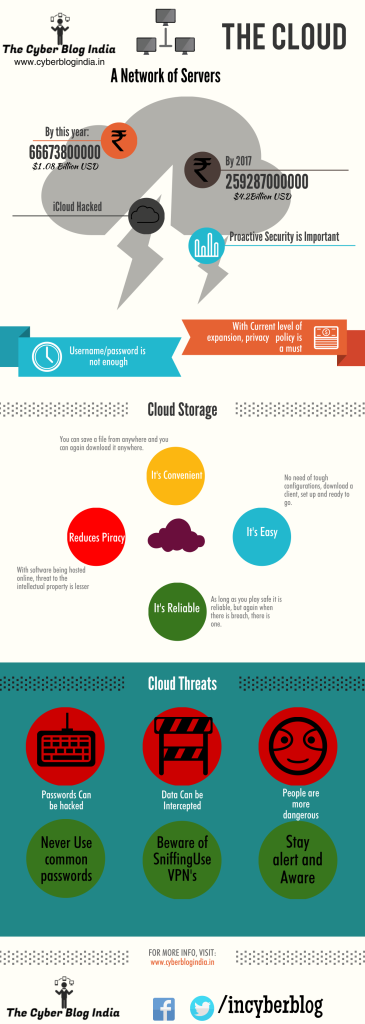What is the cloud really?

The young buzz in the Cyber Space- The Cloud.
India alone to create 2 Million jobs in the domain of cloud computing by this year.
The ‘cloud’ is the trendy tech term many people use but not many can clearly define it. Here’s our take.
The Cloud as it might also seem to you is not a physical thing. It is simply a network as you may have seen at your offices or your college, the only difference being that this network is of servers and not nodes and each server has some unique function. Some are used to run applications, some store data and some deliver services. For example, over a year ago, services like Adobe moved to the cloud to introduce a new ‘Adobe Creative Cloud’. It is reducing the risk of piracy and software forgery. Now there is going to be one server that hosts the application for the users who want to use it and another server that is responsible for storing individual data.
Myth: I am not using google drive, iCloud, dropbox etc. I am not using the CLOUD.
You take a picture, it stays on your memory card, We believe you. You are not using the cloud. The moment you upload it to Facebook, Instagram or any such service, you are uploading it to the cloud. You write an email and send it or you receive it, it is all happening over the cloud. So you might be using the cloud for years now.
The major benefit of the cloud as we have observed is primarily financial. Companies and projects don’t want to get their own equipment, set up a server room and maintain it(Plus there is a lot of overhead). They instead just get a fancy cloud service for cheap prices. The cloud is important otherwise also. People in the past used to run applications and softwares by first downloading them, then installing and running them physically on individual machines or a server in their building that they could not trust. Cloud computing allows people to access the same applications but through the internet.
For those who think the cloud is a new buzz, It is maybe technology-wise. But technically it somewhat used to happen earlier too, but now it happens via the internet meaning the levels of connectivity exponentially increase.
So why use it?
The cloud is easy, convenient and reliable (at least up to an extent). Saving a file to the cloud at least ensures that you will be able to access it via any computer that has an internet connection. That’s how there are now bye-bye to CD-ROMs and Flash drives.
Now the real story. How secure is it?
The pinpoints of security for the cloud are limited.
1. Your passwords:
Passwords can be hacked. Well, that does not mean that they are not safe, they are vulnerable to a lot of dictionary attacks. Now what dictionary attacks is simple. It is cross-referencing your password hash to a set of probabilities from a password dictionary. Now hackers use dictionaries that can be 15-20 GB of plain text. So the first trick is to never use a password that is common and that is breakable. Don’t ever reuse passwords.
2. Data can be intercepted:
Data going through a network is purely innocent packets. They say they encrypt it, but then there are always those backdoors. The trick here is to ensure an HTTPS channel on the webpage you are entering your passwords. Make sure your network is not being sniffed. The best, use a VPN.
3. People are more dangerous:
It is not very likely that someone will come personally for you as a machine. Humans are more likely to attack you virtually with these mechanisms. The best way to stay safe is to act smart in cyberspace with who you connect and how you behave.
4. It is available whether encrypted:
Government agencies with a warrant can anytime ask for data on your cloud and can get stuff from the service provider like your activity logs.
5. On the other end:
Check whether the cloud server has appropriate security standards. You can find out about their technology and firewalls on their website. Keep a tab of the data you will be storing. Check if your data is encrypted while it stays on the server.
Most importantly, understand the data sharing mechanisms and how user privileges are distributed. Check for guest accounts. Read the privacy policy well before taking up the service. If the service is hacked, what are the rights should be clear.
Save only non-sensitive data on the cloud. The traditional way of data storage is still the most robust. The chances of getting hacked physically on your machine come down to the way you secure your own infrastructure.
The ultimate showdown, if you have data at home, you need to access it at the office. A VPN is the best solution for you if you can keep the machines powered on. For VPN, Check this

